Overview
Hemp is also known as Bhang |Cannabis indica | Hashish | Marijuana | Cannabis sativa |भांग | Ganja is a type of plant whose leaves are crushed to prepare bhang .Bhang has been used in India for both medicinal and recreational purposes since ancient times. Its use can be traced back to the Vedas, the ancient sacred texts of Hinduism, which were written around 1500 BCE. In these texts, bhang is described as a sacred plant associated with Lord Shiva, one of the principal deities of Hinduism.
Bhang (Hemp) holds a special place in Hindu religious practices. It is believed to have been used by sadhus (ascetics) and devotees during religious ceremonies and rituals dedicated to Lord Shiva. Bhang is often consumed as a prasad (offering) to Lord Shiva, especially during festivals like Mahashivratri.
In contemporary India, bhang remains prevalent, especially during festivals and religious gatherings. It is legally sold and consumed in some Indian states, particularly during festivals like Holi and Mahashivratri. However, regulations regarding its production, sale, and consumption vary across different regions.
Table of Contents
Hemp | Bhang | Cannabis indica | Hashish | Marijuana | Cannabis sativa | भांग | Ganja | In Your Language
Botanical Name of Hemp/Bhang
Cannabis sativa
Common Name Hemp/Bhang
Cannabis sativa/Bhang/Hemp/Cannabis Indica
Family of Hemp/Bhang
Cannabinaceae (Cannabinaceae)
Family of Hemp/Bhang
Cannabinaceae (Cannabinaceae)
Bhang in English
Indian hemp/Hemp ,American hemp,Hashish, Marijuana,Dagga canopy
Synonyms of Hemp/Bhang
Cannabis indica
Hemp/Bhang in Sanskrit
Bhanga, Ganja, Matulani, Madini, Vijaya, Jaya (भङ्गा, गञ्जा, मातुलानी, मादिनी, विजया, जया)
Hemp in Hindi
Bhang, Bhang, Booti (भांग, भंग, बूटी )
Hemp/Bhang in Assamese
শণ (Bhang)
Hemp/Bhang in Konkani
भांग (Bhang)
Hemp/Bhang in Kannada
ಸೆಣಬಿನ (Bhangi)
Hemp/Bhang in Gujarati
શણ (Bhang)
Hemp/Bhang in Telugu
జనపనార (Ganjayi), గంజచెట్టు (Gangachettu)
Hemp/Bhang in Tamil
வழுக்கை (Ganja)
Hemp/Bhang in Bengali
সিদ্ধি (Sidhi)
Hemp/Bhang in Nepali
भांग (Bhang)
Hemp/Bhang in Punjabi
ਭੰਗ (Bhang)
Hemp/Bhang in Marathi
भांग (Bhang)
Hemp/Bhang in Malayalam
ചവറ്റുകുട്ട (Bhang)
Hemp/Bhang in Manipuri
गन्जा (Ganja)
Hemp/Bhang in Arabic
नब (Nab), बंग (Bang)

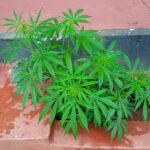
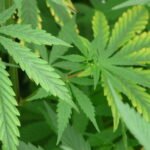

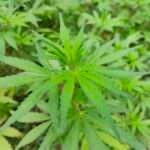
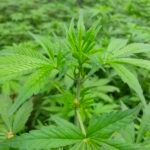
Physical Appearance of Hemp/Bhang
- Height: Bhang plants typically grow to a height of 3-8 feet, although this can vary depending on environmental factors and cultivation practices.It has a 1-2.4 m high, straight, resinous, hairy, fragrant, rainy, unisexual herbaceous plant.
- Leaves: The leaves of the bhang plant are palmate, meaning they have multiple leaflets arranged in a fan-like shape. Each leaf is typically composed of several leaflets attached to a central stem. The number of leaflets can vary, with lower leaves often having more lobes than upper leaves.Its leaves are simple, alternate, like the leaves of neem, but small, with 3-5 sub-leaflets on each group, dark green on the upper surface and soft and light colored on the lower surface, 10-20 cm wide, divided in a hand shape.
- Shape: The shape of bhang leaves can vary, but they are generally ovate or lanceolate in shape, with pointed tips and serrated edges.The upper part is divided into 1-3 parts and the lower part is divided into 5-11 parts.
- Stem: The stem of the bhang plant is sturdy and fibrous, with a woody texture. It is typically hollow and contains a central pith.Its flowers are small, axillary, green in colour. Its fruits are small granular, inside which there is one flat seed. Its flowering and fruit period is from March to November.
Chemical Composition of Hemp/Bhang
- Bhang contains cannabinoids like THC and CBD, contributing to its effects. THC induces euphoria, while CBD offers potential therapeutic benefits such as pain relief and anxiety reduction. Additionally, bhang contains terpenes like myrcene, limonene, and pinene, which provide distinctive aromas and may have various medicinal properties. The chemical composition varies based on factors like strain and cultivation methods, shaping the plant’s psychoactive and therapeutic potential.
Benefits of Bhang/Hemp ( Uses of Bhang /Hemp ) + Medicinal uses of Hemp/Bhang
There are so many benefits of Hemp in daily life So i am going to share some useful medicinal uses of Hemp or you can say bhang below:
Headache
- Grinding cannabis leaves and inhaling them can help relieve headaches.
- Heating leaf juice and putting 2-3 drops in the ear can alleviate head pain.
- Applying a paste of Arunshika-bhang leaf juice on the head can alleviate migraines.
Earache
- Putting 8-10 drops of leaf juice from Karnshool-bhang in the ear can reliaeve earaches.
Chest ailment
- Mixing 125 milligrams of roasted bhang with 2 grams of black pepper and 2 grams of sugar helps slow down breathing.
Digestive Disorders
- Indigestion: Mix 100 grams of bhang, 200 grams of ginger, and 400 grams of cumin, crush and sieve them well together. Take 1-2 teaspoons of this mixture with yogurt half an hour before meals. Doing this twice daily for 40 days helps even with severe indigestion.
- Abdominal Pain: Mixing equal amounts of bhang and powdered pepper, adding jaggery, and making 500 mg tablets helps relieve abdominal pain.
- Appetite Loss: Mixing 500 mg of ginger powder and bhang with honey and consuming it twice daily stimulates appetite.
- Diarrhea: Giving 125 mg of bhang powder with 4-6 drops of fennel extract twice a day helps alleviate severe diarrhea.
Kidney Disorders
- Kidney Stones: Straining and filtering bhang and cucumber or bottle gourd pulp in water and drinking it like a chilled beverage helps with kidney stones.
Reproductive System Disorders
Testicular Swelling: Soak bhang in water for a while, then wash the testicles with that water and apply a poultice of crushed bhang leaves to the testicles to alleviate swelling.
Testicular Inflammation: Applying a poultice of wet bhang leaves to the testicles and giving a fomentation with dry bhang boiled in water helps relieve testicular inflammation.
Painful Menstruation: Before the onset of menstruation, it’s advisable to cleanse the stomach with mild purgatives. Then, consuming ganja three times a day reduces pain and regulates menstruation.
Vaginal Looseness: Mixing equal parts of ganja, opium, turmeric, and all these with bhang, forming a pill and inserting it into the vagina helps alleviate vaginal looseness.
Bone and Joint Disorders
- Arthritis: Massaging the joints with bhang seeds oil helps with arthritis.
- Rheumatism: Roasting 125 mg of bhang in ghee, mixing it with 2 grams of black pepper and 2 grams of sugar, and consuming it 3-4 times a day helps with rheumatism and arthritis.
Skin Disorders
Wounds: Applying powdered bhang leaves on wounds and cuts promotes quick healing.
Chronic Skin Conditions: Consuming bhang powder with honey and ghee for a long time helps alleviate various skin conditions.
Minor Skin Issues: Grinding bhang, sthavara (vidhara or devadaru) roots, and shisham and applying the paste on the face helps treat minor skin problems like acne, blemishes, etc.
Mental Disorders
Hysteria: Giving 250 mg of bhang with 65 mg of asafoetida helps a lot in women’s hysteria.
Insomnia
Consumption of sleeplessness-bhang brings very good sleep. In situations where opium consumption doesn’t induce sleep, consumption of bhang is very beneficial; because it doesn’t cause constipation and headache.
Whole Body Disorders
Malaria Fever: Mix one gram of powdered pure bhang with two grams of jaggery, make four pills. For curing cold fever, give 1-1 pill every 2 hours, or give a one-gram pill of pure bhang one hour before the fever to reduce its intensity.
Frequently Asked Questions 👇
Back To Home

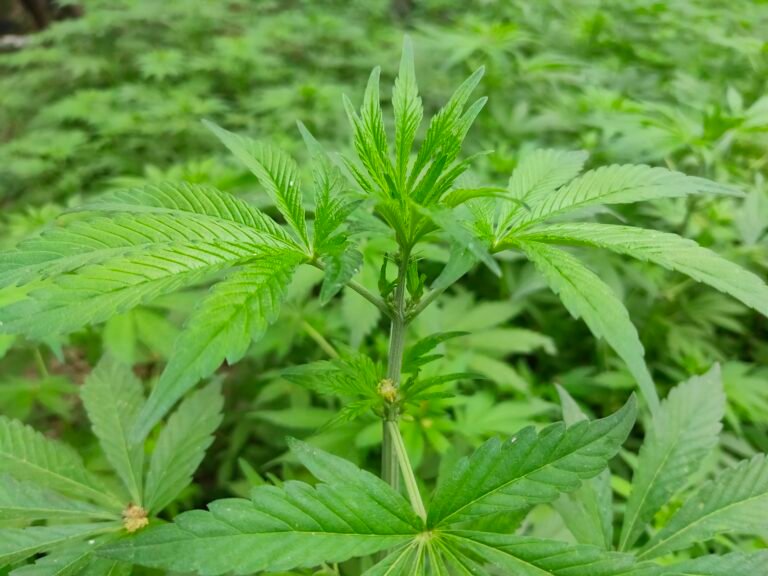
Super grateful! 💖